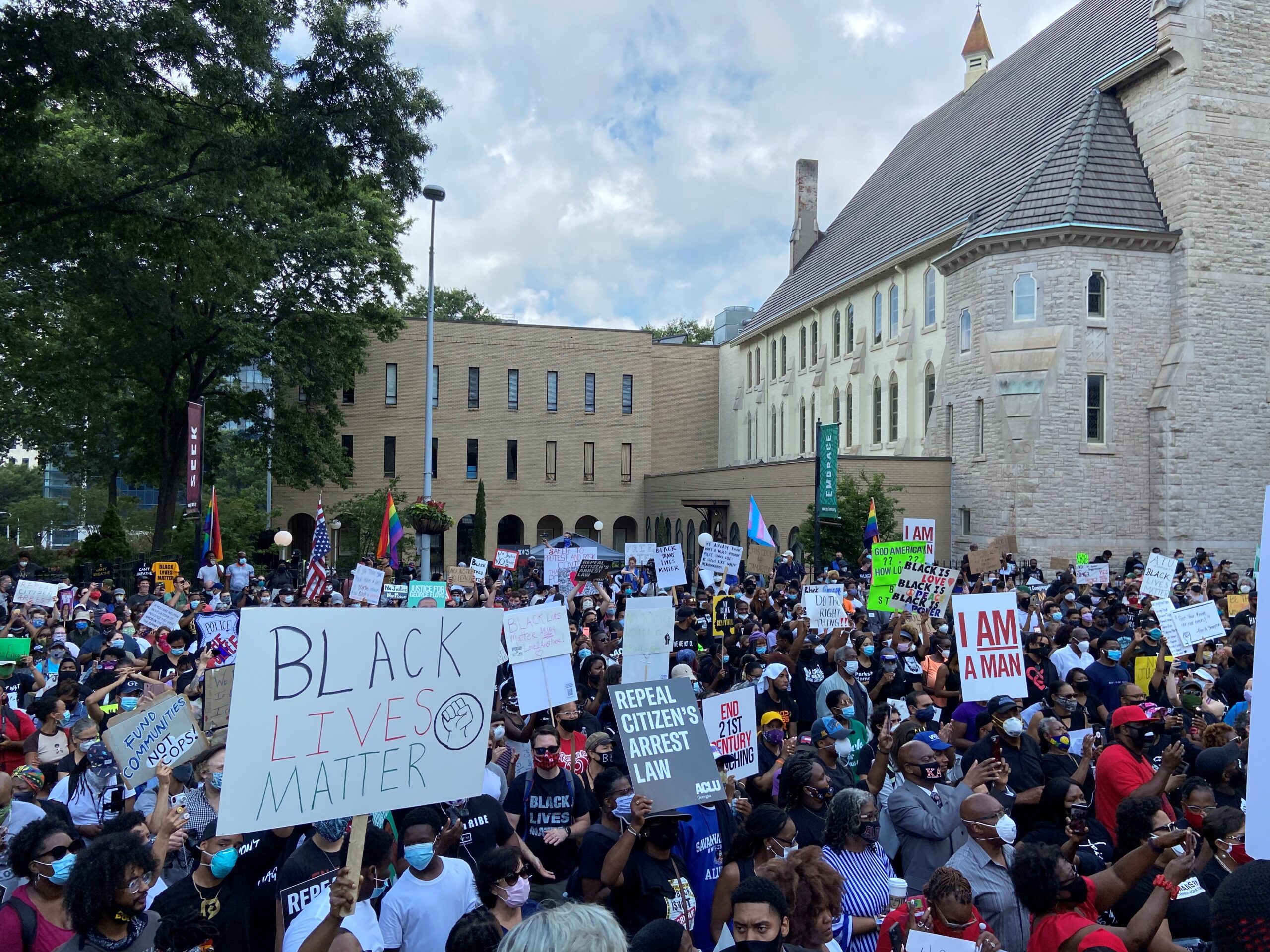As Georgia Legislature Session Resumes, Hate Crimes Bill Takes Center Stage

About a thousand protesters marched from the federal courthouse to the Georgia Capitol on Monday, the same day the state Legislature reconvened after a three-month break because of the pandemic.
Emma Hurt / WABE
On the first day of Georgia’s legislative session since March when lawmakers were forced to pause because of the coronavirus, a bill that months ago appeared stalled — the hate crimes bill — took center stage in both chambers.
This while outside the state Capitol, about a thousand people marched from the federal courthouse Monday morning, after a weekend of protests over the shooting of Rayshard Brooks by an Atlanta police officer. That follows on the heels of weeks of protests over the deaths of George Floyd, Ahmaud Arbery and Breonna Taylor.
A consistent demand in Georgia, particularly after the shooting death of Arbery in Brunswick, has been passage of hate crimes legislation, which passed the House narrowly last year but has been stalled in the state Senate. Recent court proceedings revealed Travis McMichael, who has been arrested in the shooting of Arbery, allegedly used a racial slur as Arbery lay dying.
“We must come together. We must embrace the creed that was once followed by the city of Atlanta, which proclaimed itself ‘the city too busy to hate,’” said Republican House Speaker David Ralston. “We must now be the state that is too busy to hate.”
“We know that if we leave here this session without passing a hate crimes bill, H.B. 426, it will be a stain on this state that we can never wash away.”
Ralston declared the hate crimes bill to be “just as important” as passing the state’s FY 2021 budget, which is the only thing the General Assembly is constitutionally required to do.
Protesters and Democratic lawmakers have called for further criminal justice reforms, including the repeal of Georgia’s stand your ground and citizens’ arrest laws, which have been used to defend the men now charged in Arbery’s killing, and the passage of a bill that would require law enforcement officers to document all use-of-force instances.
Ralston said other reforms, including citizens’ arrest and policing reforms, would have to wait until next session.
Democratic state Sen. Emmanuel Jones urged his colleagues to move the hate crimes bill forward.
“I stand before this Senate body today to ask that we take a stand for hate crimes,” he said. “Y’all have seen the statistics: 45 states have some sort of hate crimes law on their books.”
“It’s not just a black issue. It’s not just a Democratic issue. It’s a people’s issue,” he said. “It’s a Georgia issue. It’s a human rights issue. It’s just the right thing to do.”
Lt. Gov. Geoff Duncan, the Republican who leads the Senate, has said state senators want to improve the bill with some changes.
“I truly believe that the piece of legislation that we can ultimately design in the Senate will be able to go over in the House and be approved by them,” he said.
The bill’s author, Republican state Rep. Chuck Efstration has said doing so might be “a poison pill to kill the measure,” since after being amended, it would have to pass through the state House again. It only passed the House by six votes in 2019.
For a deeper exploration of Ahmaud Arbery’s story, listen to WABE’s podcast, “Buried Truths.” Hosted by journalist, professor, and Pulitzer-prize-winning author Hank Klibanoff, season three of “Buried Truths” explores the Arbery murder and its direct ties to racially motivated murders of the past in Georgia.








